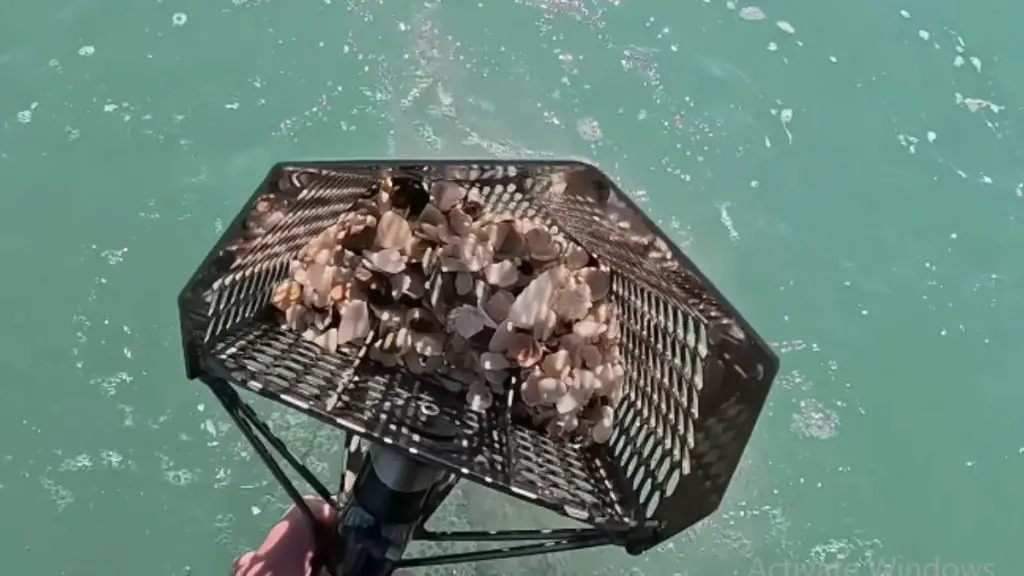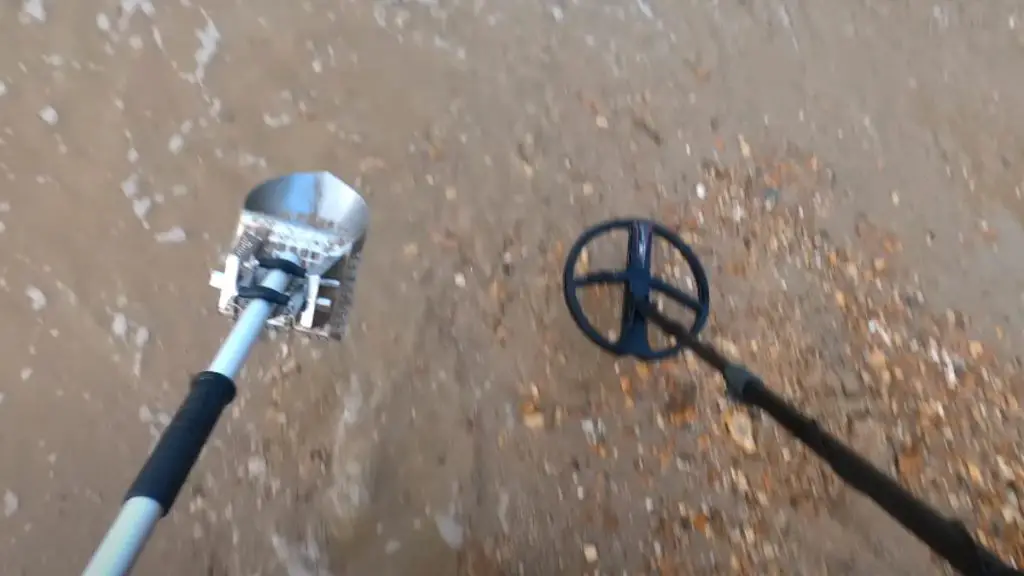Nestled in the heartland of the United States, Iowa is a treasure trove of history waiting to be discovered.
Metal detecting in Iowa can be an adventure, offering both locals and visitors a chance to unearth hidden gems and get a glimpse into the past.
So, in this article we’ll discover the best places for metal detection, best clubs and other considerations for metal detection.
Let’s begin!
Metal Detecting In Iowa

Metal detecting has gained popularity in Iowa, a state with a rich history that dates back thousands of years, with early Native American inhabitants and later European settlers.
Today, Iowa’s population is well over 3 million people, and the land tells the stories of its agricultural heritage, bustling industries, and its role in the Civil War and westward expansion.
Iowa can be considered an ideal location for metal detecting enthusiasts; with this deep history.
The numerous old towns, homesteads, and abandoned buildings present prospects for finding relics, coins, and other historical artifacts.
Iowa’s landscape, featuring parks, campgrounds, and open spaces, also provides ample opportunities for individuals to explore with metal detectors.
However, it is crucial for hobbyists to understand and respect metal detecting laws in Iowa.
These laws are designed to protect historical sites and ensure that any findings of significant value are handled appropriately.
Is Metal Detection Legal In Iowa
In Iowa, using a metal detector is generally legal, but there are some important rules to follow.
You can use metal detectors in public places like beaches and parks, but not in state parks or on historic sites, because they are protected.
If you want to use a metal detector on private property, you need to ask the owner for permission first.
If you find items that might have historical or cultural importance, you’ll need to contact the local authorities to figure out what to do next.
On the other hand you should always respect the land and don’t dig holes that you can’t fill back in.
Best Places for Metal Detection in Iowa
Here are places for metal detection in Iowa:
1. Abandoned Buildings and Structures
Iowa has numerous abandoned buildings and structures that can be treasure troves for metal detectorists.
These places, often left untouched for years, can hide historical artifacts, old coins, and jewelry.
2. Abandoned Parks and Mines
Similar to abandoned buildings, old parks and mines in Iowa are excellent spots for metal detecting.
These areas, once bustling with activity, may contain relics from past visitors or workers.
3. Old Wagon Train Routes and Ghost Towns
Exploring old wagon train routes and ghost towns in Iowa can lead you to discover items left behind by early settlers and travelers.
These locations are particularly rich in history and potential finds.
4. Native American Trails
Iowa’s Native American trails are significant historical sites where you can find artifacts related to the indigenous cultures that once thrived in the area.
Always proceed with respect and awareness of the cultural significance of these sites.
5. Natural Disaster Destruction Sites
Areas in Iowa that have been affected by natural disasters, such as floods or tornadoes, can reveal interesting finds.
These events may unearth items buried for years, offering unique metal detecting opportunities.
6. Iowa Beaches, Rivers, Lakes, and Creeks
The state’s water bodies are not only beautiful but also great places for metal detecting. Items lost over the years can be found washed up or buried in the sand and mud.
7. School Yards and Old Churches
These community centers have been gathering spots for generations, making them prime locations for finding lost coins, jewelry, and other personal items.
8. Civil War Sites
Although metal detecting is heavily regulated at historical and Civil War sites, with proper permissions, these areas can yield historically significant finds related to the war.
Best Clubs for Metal Detection in Iowa
Here are some of the best clubs for metal detection:
1. Cedar Valley Research & Recovery
Location: Marion, Iowa
Contact: 319-234-8353
Meetings: First Wednesday of every month at 6:30 p.m.
Venue: Heritage Area Agency on Aging at Kirkwood Community College (south entrance).
This club offers a platform for metal detecting enthusiasts to meet, share, and learn from each other.
Though the website and social media links are not provided, the club’s regular meetings suggest a vibrant community of hobbyists.
2. Siouxland Metal Detecting and Archaeology Club
Location: Sioux City, Iowa
Contact: 712-389-6375
Details about meeting times and venues were not specified, but the club’s existence indicates a focus on both metal detecting and the appreciation of archaeological finds.
3. Clubs That May Not Be Active Anymore (But Worth Checking Out)
- Nebraska Adventurers in Council Bluffs
- Illinois & Iowa Treasure Hunting Club in Davenport
- Midwest Prairie Research & Recovery Team in Jesup
You can access special detecting sites, learn from experienced detectorists, and take part in organized events and competitions.
If a club doesn’t have an active online presence, you can call them directly to get the latest information on their activities and how to join.
Can I keep what I find metal detecting?
In simple terms, whether or not you can keep what you find while metal detecting really depends on where you are and what you find.
If you’re metal detecting on your own property, you’re usually safe to keep whatever you discover.
But, if you’re on public land, local laws might require you to report your finds, especially if they’re historically important or considered treasure.
If you find anything on someone else’s private land, you must have permission from the landowner and typically, any finds should be split.
Can you metal detect on BLM Land in Iowa?
Yes, you can metal detect on BLM (Bureau of Land Management) land in Iowa, but there are some rules you need to follow.
First, you should check the specific BLM area for any restrictions or requirements, like getting a permit.
You should also respect the land; don’t leave holes open and don’t take anything that might be historically important.
If you find something that looks old or valuable, it’s best to contact the BLM office and let them know.
Lastly, follow the “Leave No Trace” principles to keep the land clean and undisturbed for others to enjoy.
You can also find our guide on metal detection in Alaska, In Ontario, in Queensland, and Liverpool; for successful hunt.
Is there any buried treasure in Iowa?
The idea of buried treasure in Iowa is more myth than reality.
While there are stories and legends that suggest the existence of hidden caches from the days of bandits and outlaws, there hasn’t been any verified discovery of significant treasure in the state.
Many of the tales are based on folklore that enthralls treasure hunters and history enthusiasts alike, but evidence is scarce.
However, if you’re interested in treasure hunting, you might consider metal detecting or searching for geodes.
Best Equipments for Metal Detection in Iowa
| Equipment Type | Model/Item | Features | Why It’s Suitable for Iowa |
| Metal Detector | Garrett AT Pro | Waterproof up to 10 feet, high-resolution iron discrimination, Pro Mode Audio | Versatile for Iowa’s diverse landscapes, including rivers and lakes. Ideal for relic hunting and coin shooting. |
| Metal Detector | Minelab Equinox 800 | Multi-IQ technology, waterproof, fast recovery speed | Adaptable to different soil types in Iowa, including mineralized ground. Great for historical relics and gold prospecting. |
| Pinpointer | Minelab Pro-Find 35 | Waterproof, Ferrous Tone ID, adjustable sensitivity | Helps precisely locate smaller targets in Iowa’s varied soils, enhancing efficiency during searches. |
| Digging Tool | Lesche Standard Digging Tool & Sod Cutter | Heavy-duty, serrated edge, includes a sheath | Essential for responsibly digging in Iowa’s sometimes tough soil, ensuring quick and clean recovery of finds. |
| Headphones | Garrett MS-2 Headphones | Waterproof connector, comfortable fit, volume control | Provides clear audio signals, crucial for distinguishing between different types of metal targets in noisy environments. |
| Sand Scoop | CKG Sand Scoop for Metal Detecting | Stainless steel, durable, designed for wet and dry sand | Useful for searches along the banks of Iowa’s rivers and lakes, making it easier to sift through sand and gravel. |
| Carry Bag | Garrett All-Purpose Carry Bag | Padded, multiple pockets, durable | Protects the metal detector and accessories during transportation across Iowa’s diverse terrains. |
| Coil Cover | Coil Cover (appropriate size for your detector’s coil) | Protects search coils from wear and tear | Extends the life of the metal detector’s coil, especially useful in rugged Iowa terrains. |

Frederick Perez is the founder of Scrape Dude. He loves exploring and finding hidden treasures in unexpected places. Frederick has been dumpster diving and gold panning for years, turning his hobby into our website to share his adventures. He’s known for his friendly advice and exciting stories, inspiring others to discover the joy in these unique hobbies. His expertise makes Scrape Dude a trusted and fun place to learn and explore.


